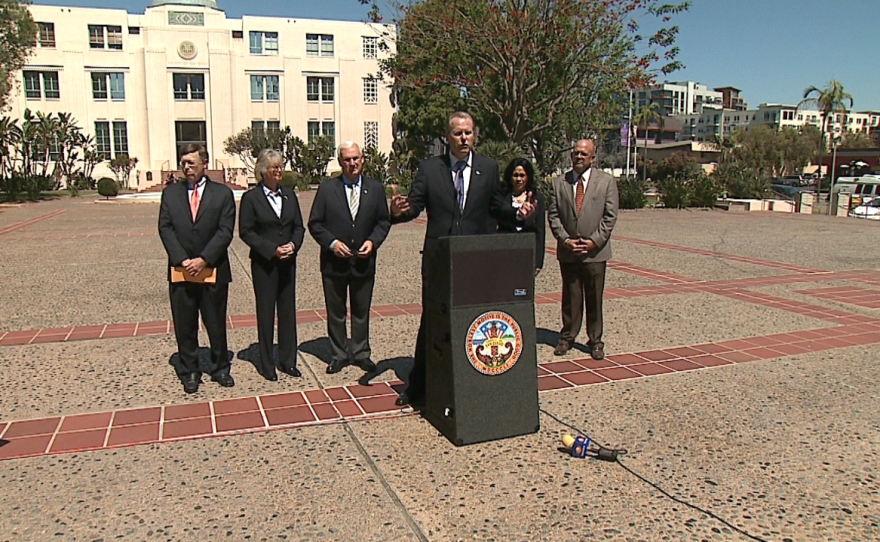City and county of San Diego officials are scheduled to meet Tuesday with National Football League executives about a proposed stadium in Mission Valley.
The meeting is expected to cover an expedited environmental study being conducted on the site and a financing plan that's under development. It comes about two weeks before San Diego leaders make their pitch to keep the Chargers in town to NFL owners at a league meeting in Chicago.
The Chargers have been asking for a new stadium for nearly 15 years and have acquired land in Carson, in Los Angeles County, on which they could build a facility — perhaps jointly with the Oakland Raiders.
San Diego responded with a concept for a 65,000-seat facility that would be built next to the current Qualcomm Stadium.
Mark Fabiani, the Chargers' spokesman on stadium issues, objects to the faster timeline of the environmental report, which he says won't be legally defensible.
Mayor Kevin Faulconer and City Attorney Jan Goldsmith disagree, contending that the stadium project is merely replacing an existing facility.
The study isn't taking into account other development that could take place on the 166-acre stadium site once Qualcomm is torn down. The ancillary development was part of the revenue options proposed by a citizens advisory group, but is no longer part of the city-county proposal, according to the mayor's office.
Opponents of the expedited EIR contend that further development of the surrounding land is a foreseeable consequence of the stadium project, and should be included in the document.
The stadium would not only host Chargers games, but San Diego State University contests, the Holiday and Poinsettia bowls, high school championships and special events.






